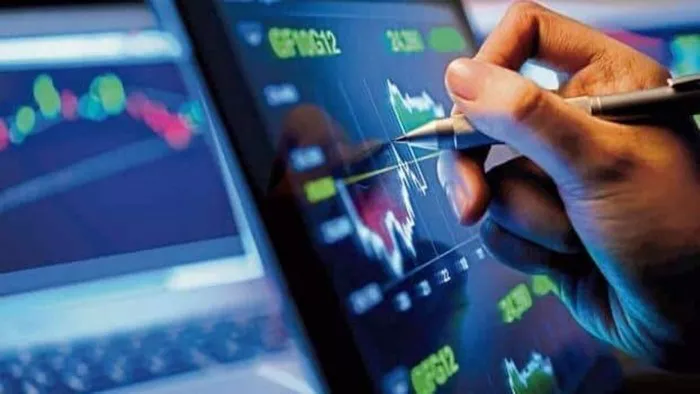In the fast-paced world of currency futures trading, timing is everything. Traders seek to capitalize on market fluctuations and seize profitable opportunities, making it essential to understand the best times to engage in currency futures transactions. In this comprehensive guide, we will explore the factors influencing optimal trading times for currency futures and how traders can strategically navigate the clock to enhance their chances of success in this dynamic financial market.
Understanding Global Forex Market Sessions
The global forex market operates 24 hours a day, five days a week, across major financial centers worldwide. However, this constant availability doesn’t mean that all trading sessions offer the same opportunities for currency futures. The forex market is divided into distinct sessions: the Asian session, the European session, and the North American session. Each session has its characteristics, with overlapping periods providing unique trading conditions.
The Asian Session and Currency Futures
The Asian trading session is the first to open, with major financial hubs such as Tokyo, Hong Kong, and Singapore driving market activity. The Asian session is known for its relatively low volatility compared to other sessions, making it a period where currency futures may experience narrower price ranges. Traders focused on specific currency pairs, such as those involving the Japanese Yen, may find the Asian session more conducive to their strategies. However, overall trading volumes during this session can be lower, impacting liquidity.
The European Session and Currency Futures
The European trading session, centered around financial hubs like London and Frankfurt, represents a period of increased market activity. The European session is known for higher liquidity and volatility, making it a favorable time for currency futures trading. Traders often witness significant price movements and increased trading volumes during the overlap between the European and Asian sessions. This overlap occurs during the early morning hours in London, providing opportunities for those looking to capitalize on currency price fluctuations.
See Also: How does CME exchange work?
The North American Session and Currency Futures
As the European session winds down, the North American trading session takes center stage, with major financial centers such as New York influencing market dynamics. The North American session sees a substantial increase in trading volumes, particularly during the overlap with the European session. This overlap, known as the “power hours,” is a period of heightened volatility and liquidity, making it a prime time for currency futures traders to actively participate in the market. Major economic data releases and news announcements often occur during the North American session, contributing to market movements.
Factors Influencing Optimal Trading Times
While the delineation of trading sessions provides a broad framework, optimal trading times for currency futures can be influenced by various factors beyond geographical sessions. Economic calendars, central bank announcements, and geopolitical events play a crucial role in determining market volatility and direction. Traders should be aware of scheduled events that may impact currency markets, adjusting their strategies and positions accordingly.
Consideration of Currency Pairs
The choice of currency pairs also influences the best time to trade currency futures. Certain pairs exhibit higher volatility and liquidity during specific sessions. For instance, currency pairs involving the Euro (EUR) often see increased activity during the European session. Traders should align their preferred currency pairs with the corresponding trading sessions to capitalize on the most favorable conditions for their strategies.
Tailoring Strategies to Market Conditions
Successful currency futures trading involves adapting strategies to prevailing market conditions. Traders employing trend-following strategies may find the start of major trading sessions conducive to capturing potential directional moves. In contrast, range-bound strategies may be more effective during periods of lower volatility. Being flexible and adjusting trading approaches based on the time of day and market conditions is a hallmark of effective currency futures trading.
Liquidity and Spreads in Currency Futures
Liquidity, a key determinant of trading efficiency, varies throughout the trading day. Currency futures traders should consider the impact of liquidity on spreads—the difference between the bid and ask prices. During periods of high liquidity, spreads tend to be narrower, reducing transaction costs for traders. Optimal trading times often coincide with periods of peak liquidity, such as the overlap between major trading sessions.
The Impact of News and Economic Releases
Economic indicators and news releases can significantly influence currency markets, creating periods of heightened volatility. Traders should be attentive to economic calendars, which highlight key releases such as employment reports, interest rate decisions, and GDP figures. The moments surrounding these announcements can offer both opportunities and risks, making them crucial considerations when determining the best times to trade currency futures.
Navigating Overnight Trading
While the forex market operates 24 hours a day, overnight trading can present unique challenges. Reduced liquidity during the Asian session, coupled with lower trading volumes, may lead to wider spreads and increased slippage. Traders engaging in overnight positions should exercise caution, implement risk management strategies, and be prepared for the potential impact of unexpected news events during these quieter hours.
Conclusion
Determining the best time to trade currency futures involves a nuanced understanding of global forex market sessions, economic events, and the characteristics of specific currency pairs. Traders should align their strategies with periods of heightened liquidity, consider the influence of news releases, and be aware of the unique dynamics of each trading session. By mastering the clock and strategically navigating the various market sessions, currency futures traders can enhance their ability to seize profitable opportunities and effectively manage risk in this dynamic financial landscape.

